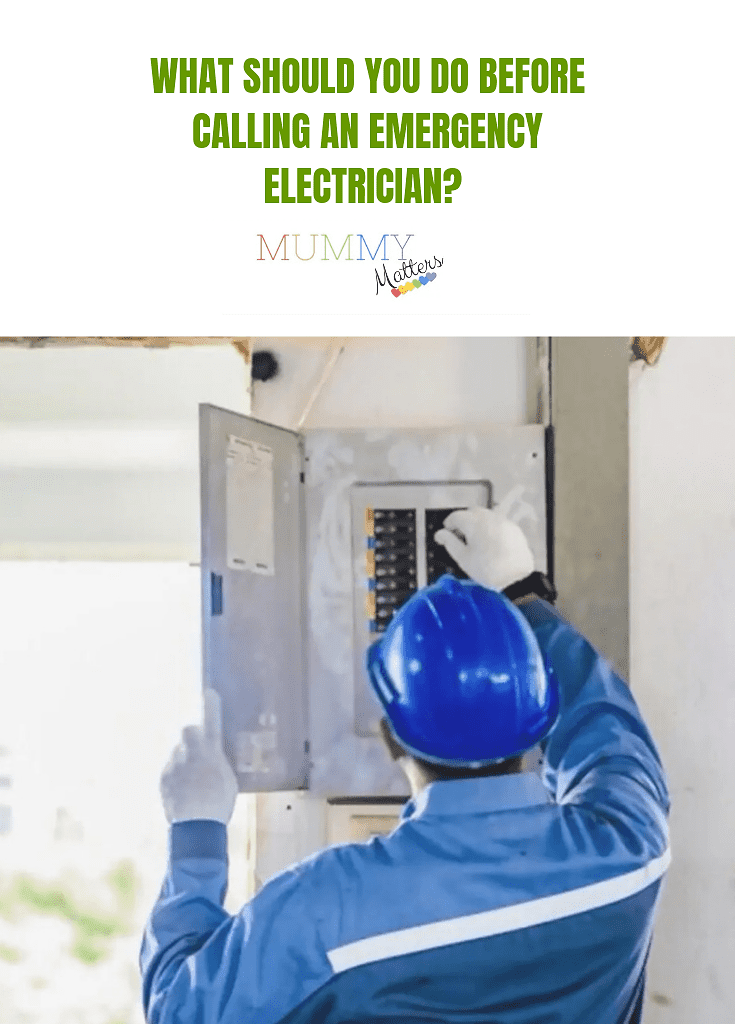Electrical emergencies must be approached with caution. The last thing you want to do is tackle the issue blindly, jeopardising your safety. With the wrong approach, you are left vulnerable to electrocution, fire, short circuits, and many other potentially fatal incidents.
Should an emergency arise, you must contact an emergency electrician that serves your local area. However, there is still value in understanding what to do when the issue first rears its head.
Try to Determine the Root Cause
The first step to an effective response is recognition. While some issues are easy to identify (such as visibly damaged wiring), others are difficult to spot. Although it is important to determine the underlying cause, it remains critical that you do not seek to resolve the issue with an ad-hoc DIY solution.
Without intervening, however, you can still examine the situation. This may involve checking whether the outlet is overloaded or for power line damage. Even if you uncover a minor issue, the best action is to reach out for professional assistance. Not only is this crucial for personal safety, but also the state of your property, appliances, and pets.
Are the Power Lines Damaged?
Faulty or fallen powerlines represent a major threat to your health and safety. Given the rise of unprecedented weather events in Australia, damage to the powerlines in your area may occur at any time. So, what actions can you take when this happens?
- Maintain your distance: First, you and your loved ones must move at least 40 metres away from the affected line/lines
- Reach out for help: Call 000 as soon as possible to report the issue
- Steer clear: Don’t approach the structure
- Do not touch: Never touch any conductive material
What If It’s an Electrical Fire?
Whether caused by faulty wiring, overloaded outlets or general negligence, electrical fires are a serious issue that can quickly get out of hand. Again, this is an issue that requires a careful and measured response. General recommendations for electric fires are as follows.
1. Turn off/cut the power supply
This process will ensure that your power supply’s source ceases, preventing further electric shocks and outbreaks.
2. Diffuse the fire with an extinguisher
Depending on the situation, two types of extinguishers can be used. Class A fire extinguishers are applicable for instances where the power supply is already cut. At the same time, Class C models are the most suitable option to control fire-threatening electrical equipment.
3. Call 000 for help from the fire brigade
Even if you can diffuse the situation with an extinguisher, it remains vital to contact the fire brigade. Trained professionals can assess the area and identify any concerns or potential risks.
4. Evacuate the area
Electrical fires can quickly get out of control. Their proximity to electrical devices and wiring only adds to the potential risks. Therefore, you and your family must evacuate the area ASAP. If fire or smoke has engulfed your home, it is important to stay close to the ground. This will help to prevent inhalation of smoke.
An Electric Shock Occurs – What next?
Electric shocks are another issue that requires the assistance of trained professionals. Shocks generally occur because of faulty wiring, plugs and outlets, leaving residents vulnerable to varying levels of electrocution. Should an electric shock occur at your home or place of work, the recommendations are as follows.
1. Switch off the power source
Cutting supply is the first and most important step. This must be done quickly and undertaken using an insulated item. If you are not comfortable with this step, reach out to an emergency electrician as soon as possible.
2. Keep your distance
Electric shocks are a severe health and safety issue. As a result, maintaining your distance is always the safest response. This will also apply to any family, friends, or pets in the vicinity.
3. Reach out for medical assistance
When electric shocks occur, the individual may experience burns or other medical issues. In this situation, reach your local doctor or hospital immediately.
Always Contact an Emergency Electrician
Once you have followed the steps outlined above, the next step is to contact an emergency electrician that serves your local area. Remember – Electrical issues are serious and should be left to a seasoned professional. This statement is true for fires, shocks, broken powerlines, and various other instances.

